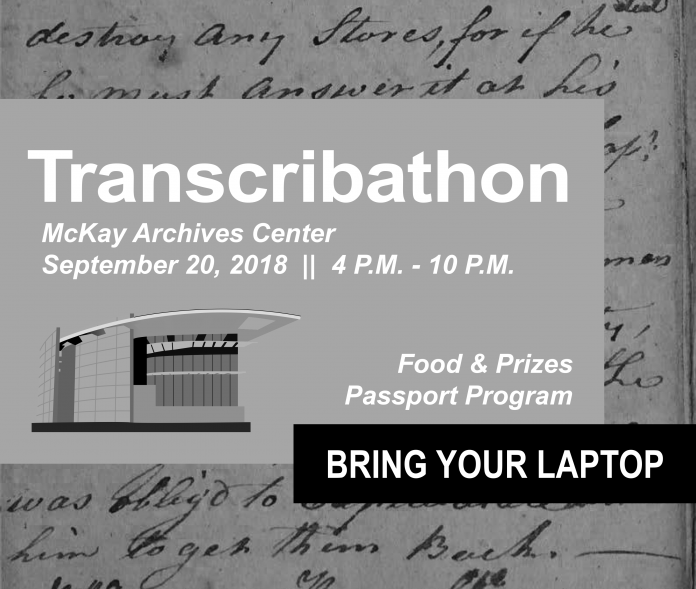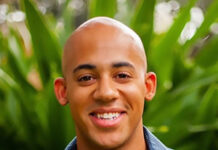
Hannah Kiester
On Thursday, Sept. 20, English Honors Society, Sigma Tau Delta, will partner with Dr. Eskin’s British Literature class to host FSC’s first Transcribathon.
“Thousands of manuscripts from earlier periods are untranscribed- that means they are there but none but a few actually know what they say,” English professor Dr. Eskin said, “The Transcribathons organized through the Folger Shakespeare Library make those materials available for readers and researchers.”
At the Transcribathon, students will be working in teams to “decode” old manuscripts- a manuscript being any type of book, musical piece, or other document that was written by hand rather than typed. Most of the manuscripts that scholars deal with are dated before the invention of the printing press.
Teams will work to decode a given manuscript using a website called Dromio, which allows participants to record their transcriptions and save them as they work. Winning teams will receive prizes, as well as free refreshments for all who show up to participate. Additionally, the event counts as Passport credit for those who stay at least 2 hours of the event time.
An event like the Transcribathon merges history with puzzle-solving in a friendly, competitive environment. It is also merging departments by stretching beyond the English department to reach other disciplines.
“The guest list for our Transcribathon is growing. New faculty member Dr. Anna Caney, who specializes in European History, will be joining us for the event.”
– Dr. Eskin
Students who wish to participate do not need to have experience with manuscripts, history, or transcribing in order to participate. Sigma Tau Delta members will be working to help the teams set up their stations and begin the process.
The program in use, Dromio, is also designed to help make the transcription process easier. All students need to bring to participate is a laptop, so they can access Dromio online.
Despite this semester being the first Transcribathon at FSC, events such as this one have been held on several college campuses before. Most are in partnership with the Folger Shakespeare Library, which provides manuscripts that are used in these events.
“Some of the first Transcribathons date from about 2014, with their numbers and diversity of locations increasing in the past 4 years,” Dr. Eskin said.
In addition to the Transcribathon, students from Dr. Eskin’s ENG 3313 Brit Lit I class are working this semester in partnership with Brit Lit I students at Stetson University to transcribe selected manuscripts for a class project. The project allows students from both Stetson and FSC to work together using Dromio to learn more about manuscript culture before the invention of the printing press.
“I have really enjoyed the opportunity of working with a colleague at Stetson (Dr. Joel Davis) and hopefully allowing our students to make connections with Stetson students,” Dr. Eskin said.
Providing for a unique learning opportunity, the Transcribathon and the efforts of the ENG 3313 class may be paving the way for more engaged learning at FSC.
“I’d like to make the Transcribathon at FSC a biannual event (every two years), providing the space for students from across campus to become familiar with manuscripts and help out the academic community,” Dr. Eskin said.
Students who are interested in attending the event can learn more about Transcribathons
by visiting the Folger Shakespeare Library and searching their history of working with old manuscripts and hosting Transcribathons.







